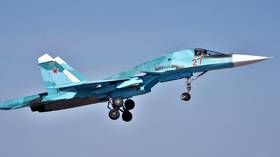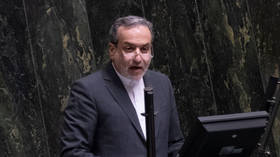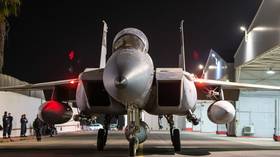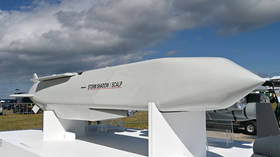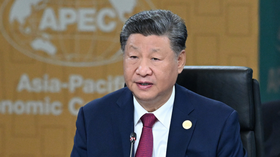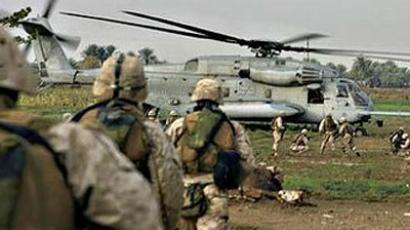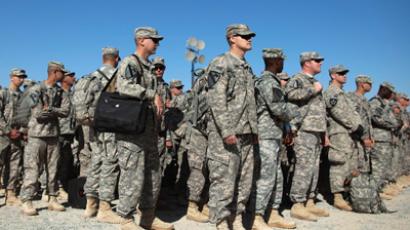Syrian deputy oil minister jumps ship
Syria’s deputy oil minister has announced his defection to the opposition from the Assad regime, making him the first Syrian politician to jump ship. Meanwhile, Russia has slammed Libya for reports of Syrian rebels being trained in the nearby nation.
Deputy minister Abdo Hussameddin announced his resignation on Wednesday night via YouTube in a video posted by activists."I, Abdo Hussameddin, deputy oil and mineral wealth minister of Syria, announce my defection from the regime, resignation from my position and withdrawal from the Baath Party. I join the revolution of this dignified people," said the minister on camera.He is the first senior civilian official to announce his resignation since the uprisings against President Bashar al-Assad’s regime began last March.Hassameddin also denounced Russia’s and China’s stance on the conflict, labeling them as “not friends of the Syrian people”. He said that after 33 years of service to the Syrian government he did not want to finish his career serving a “criminal regime”, calling on his colleagues to abandon the “sinking ship” of the Assad government.An activist known as Rami, who filmed and posted the video, told news agency AFP Beirut that the opposition had helped orchestrate deputy minister Hussameddin’s resignation from government.The resignation comes off the back of heightening tensions in the international community over possible intervention in the troubled country.
Libya: Opposition’s offshore training center
At a UN Security Council meeting on Wednesday Russian UN representative Vitaly Churkin brought to light reports of a special training center for Syrian revolutionaries located on Libyan territory. He described the base as “completely unacceptable,” saying that it undermined stability in the region.“Bearing in mind the presence of Al-Qaeda on Syrian territory, one cannot but ask if the export of revolution might turn into the export of terrorism," remarked Churkin.Strategic researcher and analyst Dr. Salim Harba told RT’s Maria Finoshina that members of the opposition arrested during the government taking of Baba Amr were from “Gulf countries and Afghanistan, Iraq, Libya and some European states.” “Their work was coordinated by Qatari and Saudi intelligence officers, as well as CIA, Mossad, and Blackwater agents. It has also seized Israeli weapons, especially anti-tank missiles and Israeli drones,” said Dr Salim Harba.Dr. Harba also stated that the presence of extremist groups such as Al-Qaeda in the region is indicative of the international community getting “local players involved” in order to further their own interests.
‘Non-lethal aid’
Meanwhile, in the US the push for military intervention in Syria is gaining momentum. At a meeting on Capitol Hill in Washington, US Secretary of Defense Leon Panetta said Washington was discussing the delivery of what he called “non-lethal aid” to the Syrian opposition. "We are reviewing all possible additional steps that can be taken with our international partners to support efforts to protect the Syrian people, end the violence and ensure regional stability, including potential military options if necessary," said Panetta.The Obama administration has thus far been dead set against any sort of military intervention, but swift escalation of the conflict in Syria has seen US political dialogue edge closer to possible military action.Gerald Celente, publisher of US Trends Magazine, spoke to RT about forces in the American government looking to destabilize Syria with a view to dominating the oil-rich area.He alluded to the cyclical nature of US rhetoric on military invention with “war hawks” such as John McCain lobbying for military aid, while official policy resolves to use diplomacy to solve the conflict. “The heads come in and say ‘We have to use diplomacy.’ Meanwhile they’re building up for the military conflict,” said Celente.Furthermore, he said that the US is trying to maintain control in the region to prevent China and Russia from have accessing Middle East oil at their whim.


